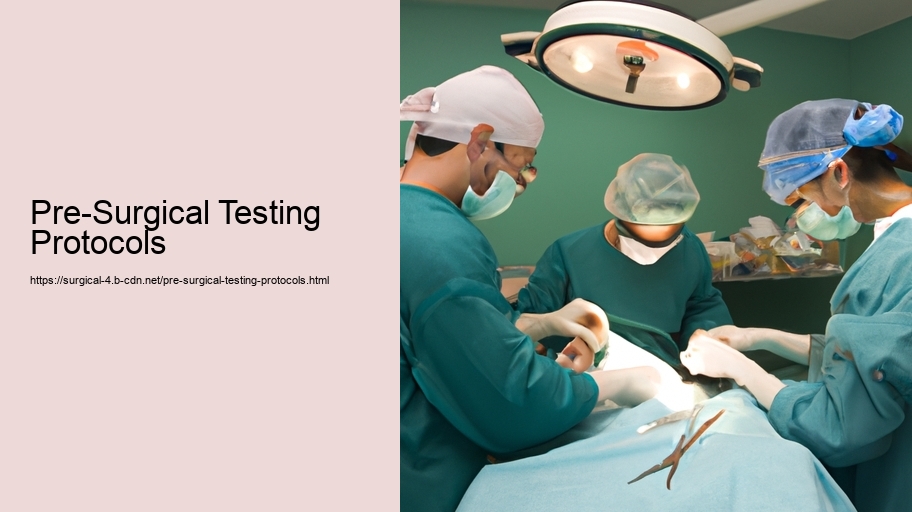Pre-surgical testing protocols are a critical component of the surgical preparation process, designed to ensure patient safety, optimize surgical outcomes, and minimize the risk of postoperative complications. These protocols are a series of standardized tests and evaluations that patients must undergo before undergoing any surgical procedure. The purpose of this essay is to explore the importance of these protocols, what they typically involve, and the impact they have on both patients and healthcare providers.
Pre-surgical testing protocols are tailored to both the individual patient and the specific type of surgery they will be undergoing. They are crucial for identifying any potential issues that could affect the surgery or the patient's recovery. The information gathered from these tests allows surgeons and anesthesiologists to make informed decisions and plan the surgery with the highest degree of precision and care.
The scope of pre-surgical testing can vary, but it often includes a thorough medical history review, physical examination, blood tests, imaging studies, and specialized tests depending on the patient's health status and the nature of the surgery. Let's discuss each of these components in more detail.
A medical history review is the first step in pre-surgical testing. During this review, the healthcare provider will ask the patient about their medical history, including any previous surgeries, chronic conditions, allergies, medications, and family history of disease. This information helps the medical team anticipate and prevent possible complications.
The physical examination is another fundamental aspect of pre-surgical testing. A healthcare provider performs a comprehensive physical assessment to evaluate the patient's general health and to check for any conditions that may not have been previously diagnosed.
Blood tests are a standard part of pre-surgical testing. They provide valuable information about the patient's blood count, kidney and liver function, electrolyte levels, and blood clotting abilities, which are all important factors to consider before surgery. For example, abnormal clotting times can increase the risk of bleeding, while issues with kidney or liver function may affect how the body handles anesthesia and postoperative medications.
Imaging studies such as X-rays, CT scans, MRI, or ultrasounds may be ordered to give surgeons a clearer picture of the area being operated on. These images can help identify any anatomical anomalies or existing conditions that could influence the surgical approach.
Specialized tests may be necessary for patients with specific concerns or risk factors. For instance, a patient with a history of heart disease might undergo an electrocardiogram (EKG) or a stress test to evaluate their heart function. Patients with lung conditions might have pulmonary function tests to assess their respiratory status.
Pre-surgical testing protocols are also essential for psychological preparation. Understanding the patient's mental health status can help the surgical team provide better support and manage anxiety or fear related to the surgery.
The timing of pre-surgical testing is crucial. Tests are typically performed several days to weeks before the scheduled surgery. This allows enough time for any additional consultations or interventions that may be needed based on the test results.
In conclusion, pre-surgical testing protocols are an indispensable part of the surgical process. They serve to protect the patient by identifying potential risks and providing crucial information that can guide the surgical team in delivering the most effective and safest care possible. Through these protocols, healthcare providers can tailor their approach to each patient's unique needs, ultimately improving surgical outcomes and enhancing patient satisfaction. As medical technology and knowledge continue to advance, pre-surgical testing protocols will undoubtedly evolve, further refining the art and science of preparing patients for surgery.
